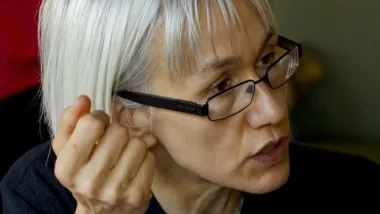Information Strategies for Answering Fundamental Planning Questions In universities in the northern hemisphere, April and May are months for completing work and moving closer to graduation. Assignments are due. Exams are looming. Students are too tired to write well and professors are too tired to notice. In the crunch for time, enterprising students look to the power of new information and communication technologies to reach out beyond their harried contexts to experts who can help them answer important questions. If Paul Davidoff (now dead) had email, they reason, he would have been happy to respond.
Information Strategies for Answering Fundamental Planning Questions
In universities in the northern hemisphere, April and May are months for completing work and moving closer to graduation. Assignments are due. Exams are looming. Students are too tired to write well and professors are too tired to notice. In the crunch for time, enterprising students look to the power of new information and communication technologies to reach out beyond their harried contexts to experts who can help them answer important questions. If Paul Davidoff (now dead) had email, they reason, he would have been happy to respond.
I've recently talked with a number of important planning scholars and practitioners and they disagree. They share the same problem--hundreds of emails including dozens from students not at their institutions asking questions that are too basic. This puts them in the position of having to be rude and not answer emails, or to take time away from their own students or their activist planning to convey information available elsewhere. In an attempt to help create an etiquette of emailing experts, the following represent tips for maximizing your chance of getting an answer.
If you are writing to ask where to start, don't write. Instead, read! Read the expert's web site, her three most recent or most relevant books, her last decade of reports, her twenty most recent articles. Google her. Search three or four article indexes at the library. When you have read her publications, then read the relevant books and articles and reports and web sites she mentions in the text. Take notes. Make summaries. You can learn a lot this way, typically more than you'd learn from an answered email.
If you still have questions .
Go visit a faculty member in your own institution. Sign up for office hours. Ask them to help you frame your question well. Write it out and give them a copy to mark up. Read the books and articles and reports and web sites the faculty member recommends. Go to sites he mentions. Go visit other on-campus experts that the faculty member suggests. Read the books and articles and reports and web sites they in turn recommend. Take notes. Make summaries. Visit more sites.
If you still have questions .
Go to the library and ask a reference librarian. You could also do this before seeing the faculty member. The job of reference librarians is to help you find information. If people don't ask them questions, they can't do their jobs. They may know other online databases or new search engines. They can help find new books. And then read the books and articles and reports and web sites you locate. Take notes. Make summaries.
If you still have questions after reading and summarizing dozens of books, articles, web sites, and reports and after talking with several key faculty members on campus then you can likely send an email. At that stage you'll be an expert of sorts and you'll be asking a very different kind of question.
When to make an exception. There is, however, one time when it is fair game to email earlier, that is when someone has no publications, reports, or web sites; and no one has written about them or their work. In those cases you need to email and they should expect some queries; though if they may be less inclined to communicate. But the rest have produced those outputs at least in part so they can spend their time working with current students and making a difference in the world.
So in summary: read first, and write much, much, much later.
Ann Forsyth currently manages several web sites including www.designforhealth.net. She wrote an earlier advice article for faculty published in the Journal of Planning Education and reprinted kindly by Randy Crane at http://planningresearch.blogspot.com/2006/10/forsyth-on-writing-and-ten…

Planetizen Federal Action Tracker
A weekly monitor of how Trump’s orders and actions are impacting planners and planning in America.

Chicago’s Ghost Rails
Just beneath the surface of the modern city lie the remnants of its expansive early 20th-century streetcar system.

Amtrak Cutting Jobs, Funding to High-Speed Rail
The agency plans to cut 10 percent of its workforce and has confirmed it will not fund new high-speed rail projects.

Ohio Forces Data Centers to Prepay for Power
Utilities are calling on states to hold data center operators responsible for new energy demands to prevent leaving consumers on the hook for their bills.

MARTA CEO Steps Down Amid Citizenship Concerns
MARTA’s board announced Thursday that its chief, who is from Canada, is resigning due to questions about his immigration status.

Silicon Valley ‘Bike Superhighway’ Awarded $14M State Grant
A Caltrans grant brings the 10-mile Central Bikeway project connecting Santa Clara and East San Jose closer to fruition.
Urban Design for Planners 1: Software Tools
This six-course series explores essential urban design concepts using open source software and equips planners with the tools they need to participate fully in the urban design process.
Planning for Universal Design
Learn the tools for implementing Universal Design in planning regulations.
Caltrans
City of Fort Worth
Mpact (founded as Rail~Volution)
City of Camden Redevelopment Agency
City of Astoria
City of Portland
City of Laramie






























